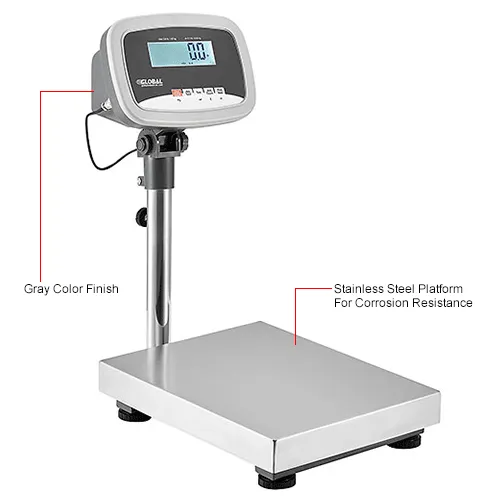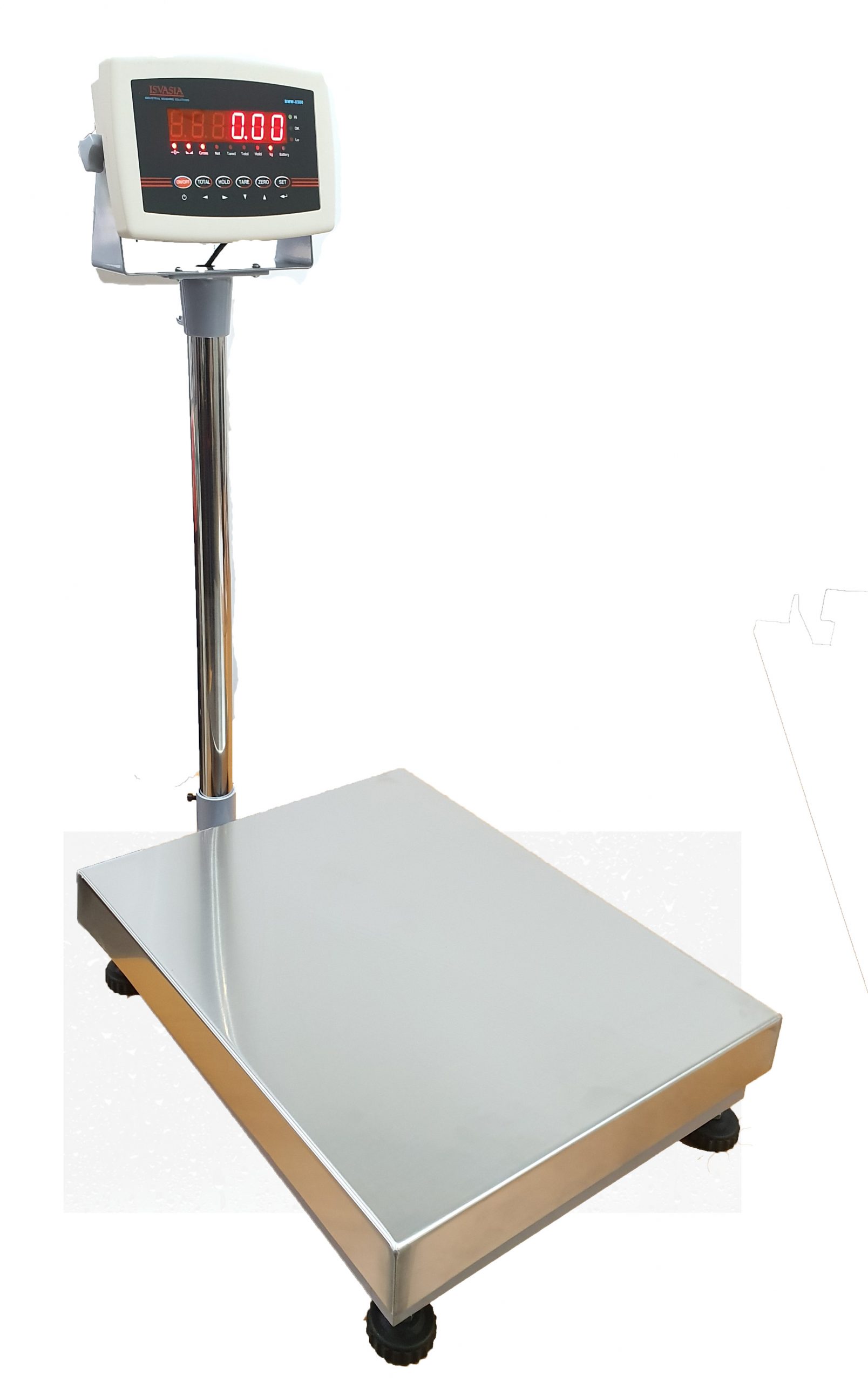
Top Attributes to Search For in High-Quality Industrial Scales
In the world of industrial operations, choosing the right scale is important for making certain efficiency and accuracy. Secret features such as accuracy and precision, along with resilience and construct quality, play a significant role in establishing the suitability of a range for details applications.
Precision and Accuracy
Guaranteeing the accuracy and accuracy of industrial scales is extremely important for efficient operations throughout numerous sectors. Precise dimensions are critical in markets such as manufacturing, logistics, and food handling, where also small inconsistencies can bring about significant financial losses, jeopardized item quality, or regulatory non-compliance. High-grade industrial scales are made to supply reputable efficiency, making use of sophisticated technology to guarantee exact weight readings.
The calibration process is necessary in maintaining the precision of these ranges. Regular calibration against certified reference weights guarantees that any type of drift in dimension is corrected, consequently promoting conformity with industry standards. In addition, making use of high-resolution tons cells improves the range's ability to find minute weight modifications, additionally improving its accuracy.

Resilience and Construct Quality
Sturdiness and build quality are crucial elements that establish the longevity and dependability of industrial scales in demanding environments. Industrial scales are frequently based on harsh conditions, consisting of direct exposure to dirt, moisture, and hefty tons. The products used in their building play a crucial function in ensuring they can stand up to these obstacles.
Top notch commercial scales normally feature durable housings made from products such as stainless-steel or light weight aluminum, which not only offer architectural integrity however additionally withstand corrosion and wear. In addition, interest to detail in the style, such as enhanced corners and shock-absorbent feet, can improve toughness and shield sensitive parts from damage.
Moreover, high-grade components, including load cells and digital components, contribute to the overall develop top quality. These components must be made to endure temperature level changes and resonances typically found in industrial settings. Ensuring correct access defense (IP rating) is also essential, as it suggests the range's capacity to hold up against dirt and fluid exposure.
Ultimately, picking industrial scales with exceptional durability and build high quality will result in a more reputable, resilient option that satisfies the strenuous needs of numerous industrial applications.
Tons Capability and Array
When picking commercial scales, recognizing their lots ability and variety is crucial for meeting details operational needs. Tons capability refers to the optimum weight that a scale can precisely measure, while the array shows the spectrum of weights the scale can take care of efficiently. It is vital to choose a range that not just meets existing requirements however also fits potential future demands.
Various markets have one-of-a-kind weight dimension needs. A production center might require ranges qualified of weighing heavy machinery components, while a laboratory might check this only need scales for lighter products. Picking a range with an ideal load ability ensures precision and accuracy, preventing straining that could bring about tools damages or imprecise analyses.
A scale that can gauge both hefty and light weights properly can boost functional effectiveness, allowing for versatile applications. Investing in additional hints scales with suitable tons ability and array substantially adds to productivity, conformity with market standards, and general operational dependability.
Ease of Use and Maintenance

In addition to user-friendliness, simplicity of maintenance is an additional crucial aspect to take into consideration. Scales that are designed with obtainable parts help with routine upkeep tasks such as calibration, cleaning, and battery substitute. A modular style can even more simplify these procedures, permitting fast repair work and minimal downtime.
Moreover, the materials made use of in the building of industrial ranges play a substantial function in maintenance. Scales made from resilient, corrosion-resistant materials are much easier to clean and less prone to damage, which prolongs their life expectancy and lowers overall operational costs.
Routine upkeep timetables, guided by the producer's referrals, are vital for guaranteeing optimal efficiency. By prioritizing convenience of usage and upkeep, businesses can ensure that their commercial ranges stay reliable, trustworthy, and efficient devices in their operations. This brings about improved productivity and a more effective operations.
Connectivity and Combination Alternatives
Integrating industrial ranges into existing operational frameworks is significantly improved by robust connectivity choices. Top quality commercial scales need to supply numerous connection approaches, consisting of USB, Ethernet, and wireless choices such as Wi-Fi or Bluetooth. These functions assist in smooth data transfer to main databases, ERP systems, or cloud their explanation systems, allowing real-time monitoring and coverage.
Additionally, advanced assimilation alternatives allow for compatibility with existing equipment, such as printers or barcode scanners, enhancing and simplifying processes workflow efficiency. Ranges that sustain industry-standard protocols, such as Modbus or RS-232, can easily interact with different devices and systems, ensuring a cohesive functional setting.
One more necessary element is the capacity to incorporate with software program services that examine and picture information - Industrial Scales. Scales geared up with APIs or software advancement sets (SDKs) give services the flexibility to tailor performances tailored to their specific demands
Lastly, taking into consideration future scalability is crucial; picking ranges that can adjust to advancing technological developments guarantees lasting worth and reduces the demand for costly replacements. In recap, assessing connection and assimilation choices is essential when picking high-quality commercial scales that will improve functional efficiency and data administration.
Final Thought
Finally, selecting top notch commercial ranges necessitates cautious factor to consider of a number of essential functions. Precision and precision make sure trustworthy dimensions, while durability and construct top quality improve resilience in challenging environments. Suitable lots capacity and array deal with varied industry needs. Additionally, convenience of usage and maintenance promote functional performance, and robust connection choices help with seamless information integration. Prioritizing these characteristics ultimately brings about enhanced efficiency and long-term value in commercial applications, strengthening the importance of informed decision-making in scale option.
In the realm of industrial procedures, picking the right range is critical for guaranteeing performance and accuracy.Ensuring the precision and accuracy of industrial ranges is critical for reliable operations across different industries. Lots capacity refers to the optimum weight that a scale can precisely gauge, while the array suggests the range of weights the scale can deal with efficiently. A manufacturing facility may need ranges capable of weighing hefty machinery parts, while a lab may only need scales for lighter materials. By focusing on ease of usage and maintenance, services can make certain that their industrial scales remain efficient, reliable, and effective devices in their operations.